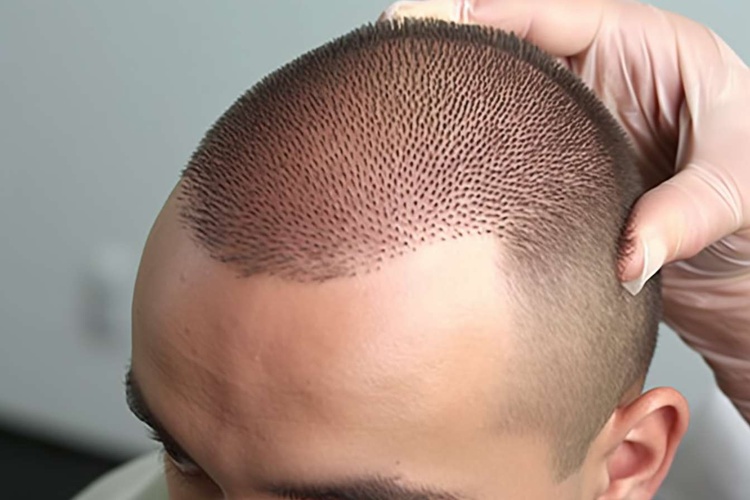Scalp Psoriasis in Seniors – Symptoms, Causes, and Relief Tips
Scalp psoriasis is a common condition among seniors that can cause itching, flaking, and discomfort on the scalp. While it’s not contagious, its symptoms can affect self-esteem and daily life. Understanding the underlying causes, recognizing early signs, and exploring effective relief strategies can help seniors manage the condition and maintain healthier, more comfortable hair and scalp.

Understanding Scalp Psoriasis Causes in Older Adults
Several factors contribute to scalp psoriasis development in seniors. The condition occurs when the immune system mistakenly attacks healthy skin cells, accelerating cell turnover and causing the characteristic thick, silvery scales. Genetic predisposition plays a significant role, with many seniors experiencing their first flare-ups after decades of carrying dormant genes.
Age-related immune system changes can trigger or worsen psoriasis symptoms. Chronic stress, which many seniors face due to health concerns or life transitions, acts as a major trigger. Additionally, certain medications commonly prescribed to older adults, including blood pressure medications, antimalarials, and lithium, can exacerbate psoriasis symptoms. Hormonal changes, particularly in post-menopausal women, may also influence the condition’s severity.
Early Warning Signs of Scalp Psoriasis in Seniors
Recognizing early symptoms helps seniors seek appropriate treatment before the condition worsens. Initial signs often include persistent itching and mild scaling that differs from typical dandruff. The scales in psoriasis appear thicker, more adherent to the scalp, and have a distinctive silvery-white appearance.
Red, inflamed patches typically develop gradually, starting small and potentially expanding over time. These areas may feel tender or produce a burning sensation. Hair loss can occur in affected areas, though it’s usually temporary and hair regrows once inflammation subsides. Some seniors notice bleeding when scratching or removing scales, indicating the skin barrier has been compromised.
Unlike dandruff, psoriasis scales don’t easily brush away and often require gentle oil treatments or specialized shampoos for removal. The condition may also extend beyond the scalp to the ears, eyebrows, or neck area.
Effective Home Remedies and Treatment Options
Multiple treatment approaches can help seniors manage scalp psoriasis effectively. Topical treatments form the first line of defense, with coal tar shampoos providing anti-inflammatory benefits and slowing cell turnover. Salicylic acid-based products help remove scales gently, while corticosteroid solutions reduce inflammation during flare-ups.
Natural remedies often appeal to seniors seeking gentler options. Coconut oil applications can soften scales and reduce itching when left on the scalp for several hours before washing. Aloe vera gel provides cooling relief and anti-inflammatory properties. Some people find benefit from diluted tea tree oil, though patch testing is essential to avoid irritation.
Phototherapy represents another effective option, with controlled UV light exposure helping slow excessive cell production. Many dermatology offices offer specialized scalp phototherapy treatments designed specifically for seniors’ sensitive skin.
Tips for Managing Scalp Itching and Flaking
Practical daily management strategies can significantly improve comfort levels for seniors with scalp psoriasis. Gentle hair care routines prove essential, using lukewarm water instead of hot temperatures that can irritate inflamed skin. Mild, fragrance-free shampoos designed for sensitive scalps work better than harsh formulations.
Avoiding aggressive scratching prevents secondary infections and reduces hair breakage. Keeping fingernails short and wearing cotton gloves at night can help prevent unconscious scratching during sleep. Cool compresses applied for 10-15 minutes can provide immediate itch relief.
Stress management techniques like meditation, gentle exercise, or relaxation practices help reduce flare-up frequency. Maintaining proper hydration and a balanced diet rich in omega-3 fatty acids may also support skin health.
Treatment Costs and Options
Understanding treatment expenses helps seniors plan their psoriasis management effectively. Over-the-counter treatments typically cost between $15-40 monthly, including specialized shampoos and topical applications. Prescription medications range from $50-200 monthly, depending on the specific treatment and insurance coverage.
| Treatment Type | Provider/Product | Monthly Cost Estimate |
|---|---|---|
| OTC Coal Tar Shampoo | Neutrogena T/Gel | $15-25 |
| Prescription Topical | Clobetasol Solution | $80-150 |
| Phototherapy Sessions | Dermatology Clinics | $100-300 per session |
| Systemic Medications | Biologics (if needed) | $3,000-5,000 |
Prices, rates, or cost estimates mentioned in this article are based on the latest available information but may change over time. Independent research is advised before making financial decisions.
Insurance coverage varies significantly, with Medicare typically covering medically necessary treatments prescribed by dermatologists. Many seniors find generic prescription options more affordable than brand-name alternatives. Some pharmaceutical companies offer patient assistance programs for expensive systemic treatments.
Managing Long-term Scalp Health
Successful scalp psoriasis management requires consistent attention and periodic treatment adjustments. Regular dermatological check-ups help monitor the condition’s progression and ensure treatments remain effective. Many seniors benefit from keeping symptom diaries to identify personal triggers and successful management strategies.
Building a support network through local psoriasis support groups or online communities provides valuable emotional support and practical tips from others facing similar challenges. Healthcare providers can also coordinate care with other specialists to address any medication interactions or underlying health conditions that might influence psoriasis symptoms.
This article is for informational purposes only and should not be considered medical advice. Please consult a qualified healthcare professional for personalized guidance and treatment.




